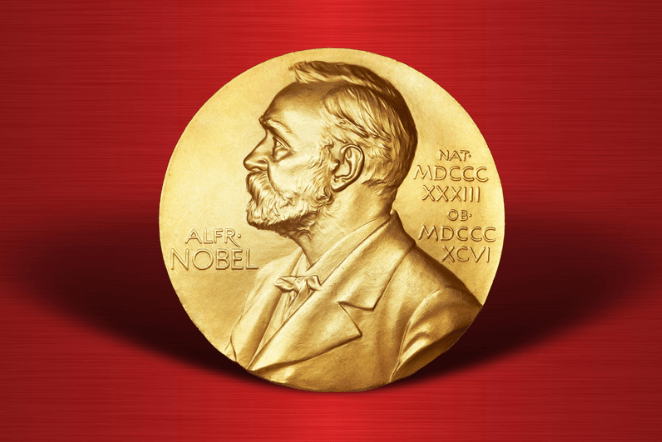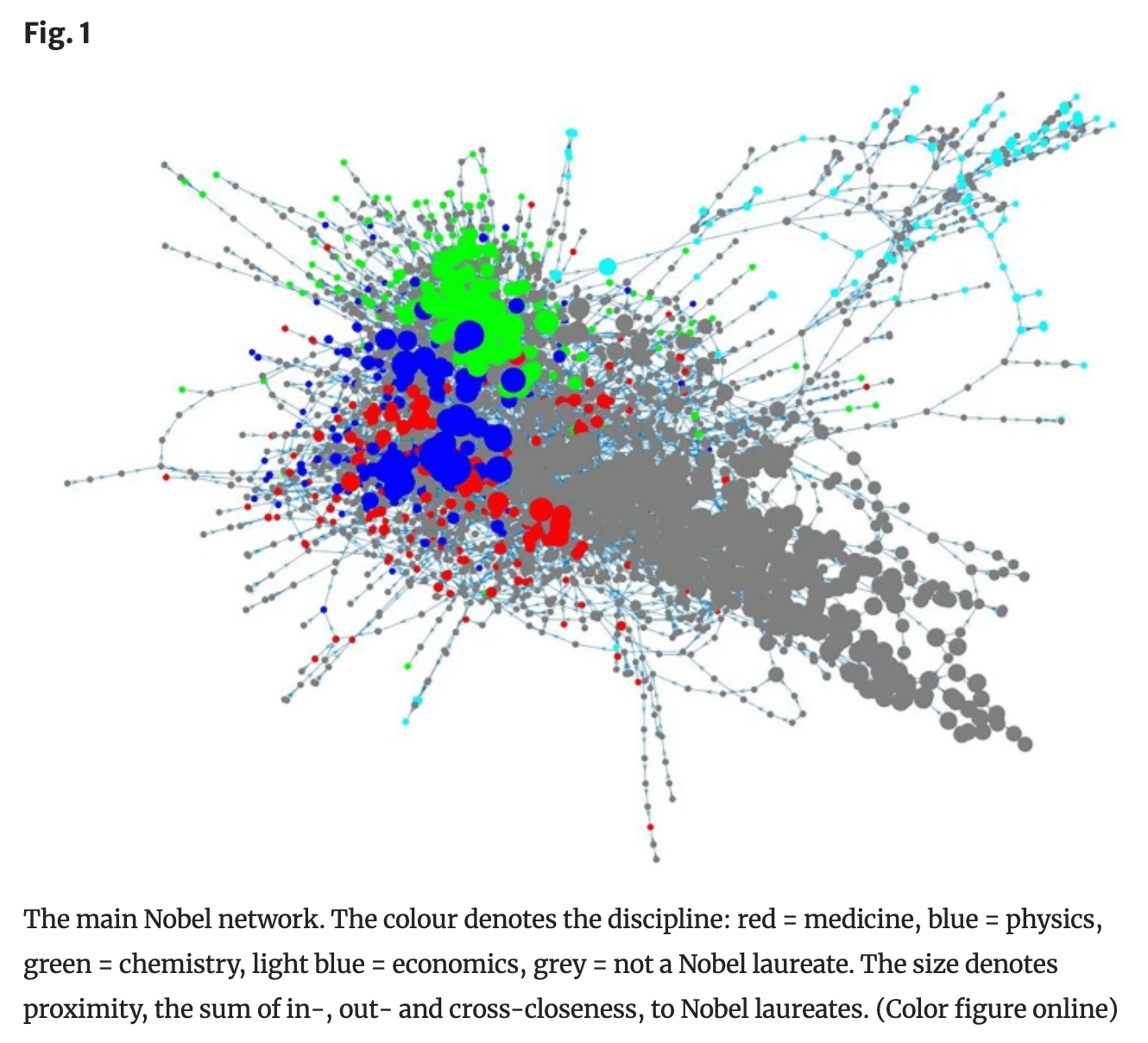
Welcome to Edition #116 of Gorick's newsletter, where Harvard career advisor and Wall Street Journal bestselling author Gorick Ng shares what they don't teach you in school about how to succeed in your career.
Sign up now to receive Gorick’s weekly career strategies!
→ Read time: 6 min
STORY
The hidden patterns of Nobel Prize winners
You may have heard of the Nobel Prize—the highest honor in science, literature, economics, peace, and more.
But did you know that you’re far more likely to win the Nobel Prize if you’ve apprenticed under a Nobel Prize winner?

In 2014, economist Richard S.J. Tol of the University of Sussex mapped the academic “family trees” of 727 Nobel laureates. What he found was surprising: 696 of them were part of the same tight-knit mentorship network.
These laureates weren’t scattered randomly—they clustered. Winners often trained with, studied under, or collaborated closely with previous winners.

Other researchers have found the same phenomenon: if you train under a Nobel winner, your odds of winning go way up.
In fact, “you’re more than three times as likely to win” compared to similarly talented peers who didn’t have that kind of mentorship and sponsorship (see my story on how sponsorship groomed a future CEO here!).

It’s not just about being smart. It’s also about being inspired, meeting the right collaborators, and knowing the unspoken rules of your profession—which is what you get when you apprentice under someone successful. Nobel-winning mentors don’t just pass on skills—they shape how their protégés think, aim, and work.
This isn't new. The tradition of greatness passed down through close contact goes back centuries. After all, Socrates taught Plato. Plato taught Aristotle. Aristotle tutored Alexander the Great.
And as Nobel Prize-winning chemist Robert Lefkowitz put it:
“I believe that one of the most important contributors to future success is not where one went to school or trained, but rather who one’s mentors were… These very important determinants of success… can’t be learned from books.”
What does this mean for you?
The next time you want to grow in your career, remember: Even the world’s best weren’t self-made. They were shaped. They sought out masters, worked with them, and learned from them.
UNSPOKEN RULE
Become an apprentice
You may have heard the saying, “You’re the average of the five people you spend the most time with.” What Professor Tol’s research taught me is that your career is just as much influenced by the people you choose to work with—and under.
This is the core idea behind apprenticeship—and you don’t need to be in a formal program or in the skilled trades to benefit from it.
How?
If you’re already in a job…
1. Find your role model
Look up the chain of command and ask yourself, “Who’s a well-respected rising star or industry veteran that I’d like to become one day?”
(This could be anyone—whether inside or outside of your chain of command.)
2. Find an entry point
Look at your existing relationship with them (if any) and ask yourself, “What’s the most effective way for me to get their attention?”
(e.g., Join the ERG that they’re an executive sponsor for? Attend one of their lunch and learns, ask a question, and approach them afterwards? Try to attend a meeting or event they’ll be at and introduce myself? Ask for an introduction from a former colleague? Or, comment on their work via a cold email?)
3. Make a thoughtful offer
Look at what you can offer and ask yourself, “What can I offer that’d be valuable to them that can become an excuse to chat and work together?”
(Don’t just say “Can I shadow you?” Instead, try something like: “I noticed you just launched a new alumni engagement effort. I used to lead alumni engagement in college and have some ideas. Is there an opportunity for me to pitch in?”)
This kind of proximity to excellence doesn’t just impact how you think. It also upgrades your standards. So, if you’re serious about growth, find the best—and apprentice under them.
See you next Tuesday for our next story and unspoken rule!
—Gorick
What’s an “unspoken rule”? They’re the things that separate those who get ahead from those who stumble—and don’t know why. You can learn more about these rules in the workplace in my Wall Street Journal bestselling book called—you guessed it—The Unspoken Rules.
Every newsletter is free and a fraction of my work.
Here are 4 of my paid offerings that may interest you:
1. Keynote speaking: My 2025 calendar is filling up! If your organization is looking for speakers for graduation season, manager training, new hire / early career orientation, AAPI Heritage Month, ERG summits, or something else, let’s chat!
2. How to Say It: Flashcards that teach you to know what to say in every high-stakes professional setting via hundreds of fill-in-the-blank scripts (just like the examples above). Free shipping on all orders over $40.
3. Fast Lane to Leadership: My online course that takes you from day 1 in a new role through to a promotion with 28 modules and 28 cheatsheets (3.5 hours of content). Use code ‘ireadgoricksnewsletter20’ for 20% off. (Want this for your organization? Let’s chat.)
4. The Unspoken Rules: My Wall Street Journal Bestseller that Arianna Huffington calls “a blueprint for anyone starting their career, entering a new role, or wanting to get unstuck.” Used by top companies and MBA programs.
Sources:


